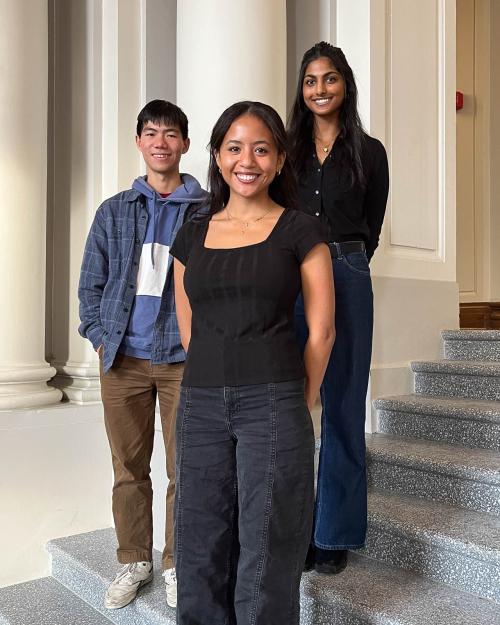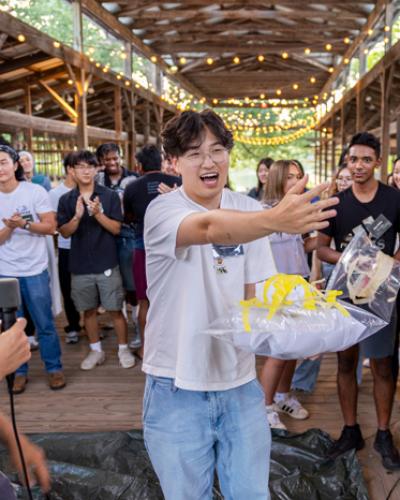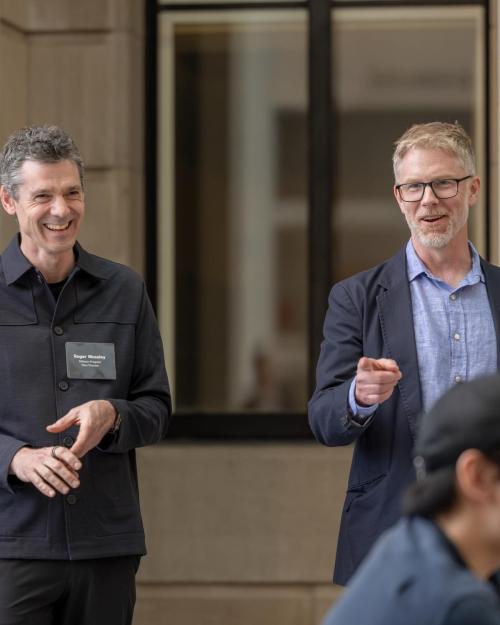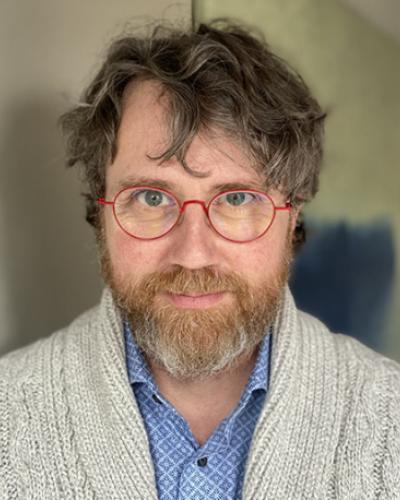Ulfar Erlingsson, PhD ‘04, said that although he works in cyber security, one of the most important skills he’s learned is the ability to tell stories.
Erlingsson, the former head of security research at Google Brain and Machine Learning Privacy Technologies at Apple, spoke with students March 2. Powered by eCornell, Erlingsson’s event was part of the Milstein Program’s “In Focus” Speaker Series which features industry leaders discussing the pivots and turns they have faced in their careers, the time between college and their first big breakthroughs, and the pathways that led to where they are now. The talk was moderated by Austin Bunn, director of the Milstein Program and BaoBao Zhang, Klarman Postdoctoral Fellow in the Department of Government.
Now chief architect at cloud security company Lacework, Erlingsson is also a Milstein Program advisory board member.
Erlingsson pursued a PhD after his undergraduate degree because he was unsure what he wanted to do for a career. He told the audience the most important skill he honed during his training was how to tell stories, a skill he credits to his English literature minor. He explained that you could have the best research in the world, but if you can’t tell the story about that research, no one will absorb the information.
“The Milstein Program is something I believe very strongly in, this combination of liberal arts skills and science,” said Erlingsson.
While computer security used to be an issue only developers needed to worry about,now computer security is an everyday concern for average people. Erlingsson helped to develop the “sandboxing” computer security technique, which is used by software programs to permit and run potentially risky, or malicious code without compromising the integrity of the computing environment upon which it runs.
In his current role with Lacework, Erlingsson is focused on using modern cloud computing to learn behavior profiles that can help detect behavioral anomalies in data-driven software security.
Responding to a question from Zhang asked about whether people should worry about cyber attacks. Erlingsson said governments should invest in a stronger cyber infrastructure. As a consumer, you should assume your data is public, he said
“Never assume (data) is not public information because it’s not just state actors...also entities that exfiltrate such data and make it public on purpose. There’s ransomware and so on. As consumers, we can ask for that situation to improve,” said Erlingsson.
Erlingsson and Zhang also discussed public distrust in COVID-19 contact tracing apps, which Erlingsson said stems from a distrust of government in the U.S.. He tied this back to the importance of storytelling and emphasized that when rolling out new technologies, scientists need to explain the technology in a way the general public can absorb and understand. Erlingsson’s minor in English literature taught him to write slowly and meticulously. He said he chooses every word carefully and in a way that doesn’t deviate from the story he is trying to tell.
When asked for suggestions about which major students should choose if they are interested in cyber security and computing, Erlingsson emphasized that while computer science is a good choice, computing is so pervasive that Cornellians could virtually choose any major, including ones from the liberal arts and humanities, as a precursor to a career in computing, or possibly cyber security. Alternatively, a computer science major can lead to a plethora of careers in the arts and humanities.
Launched in 2017, the Milstein Program offers a unique multidisciplinary curriculum to students in the College of Arts & Sciences, with workshops in design thinking, community engagement and technology topics, and two summers spent at Cornell Tech in New York City.





